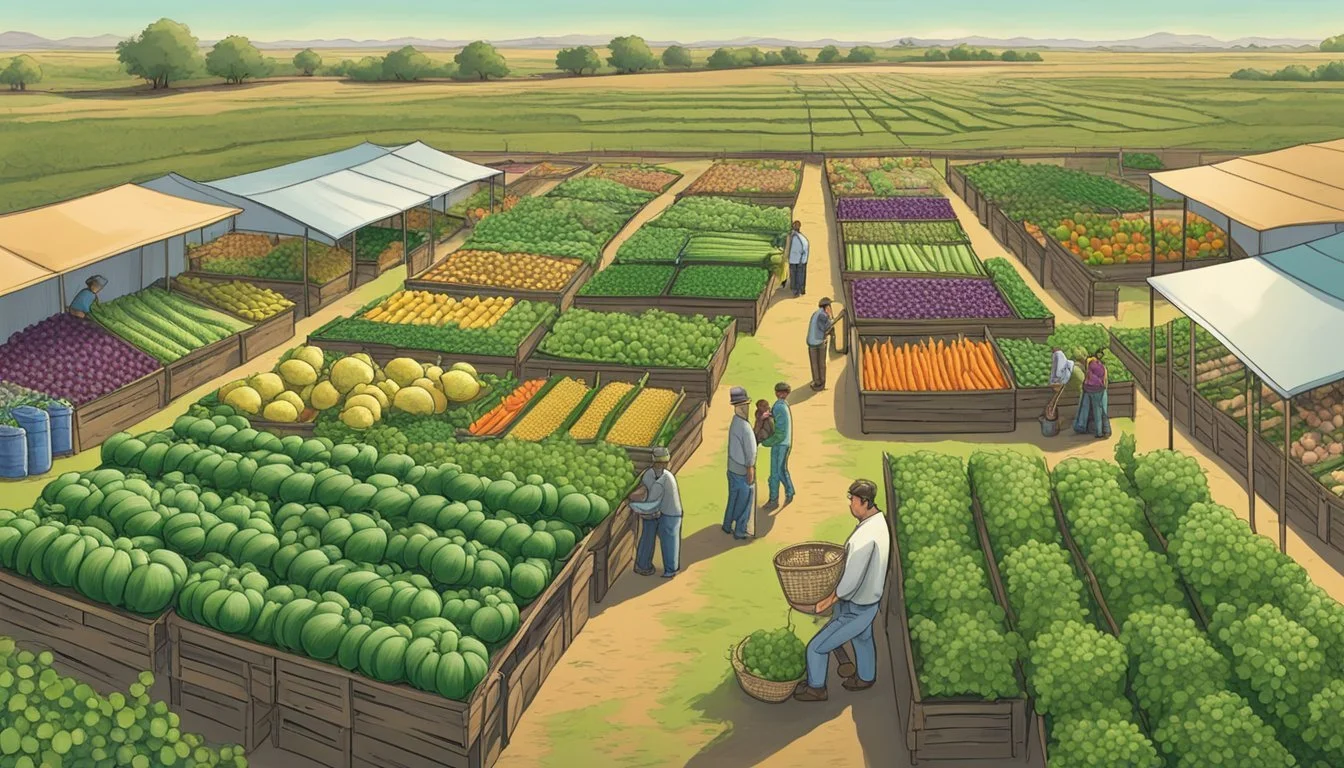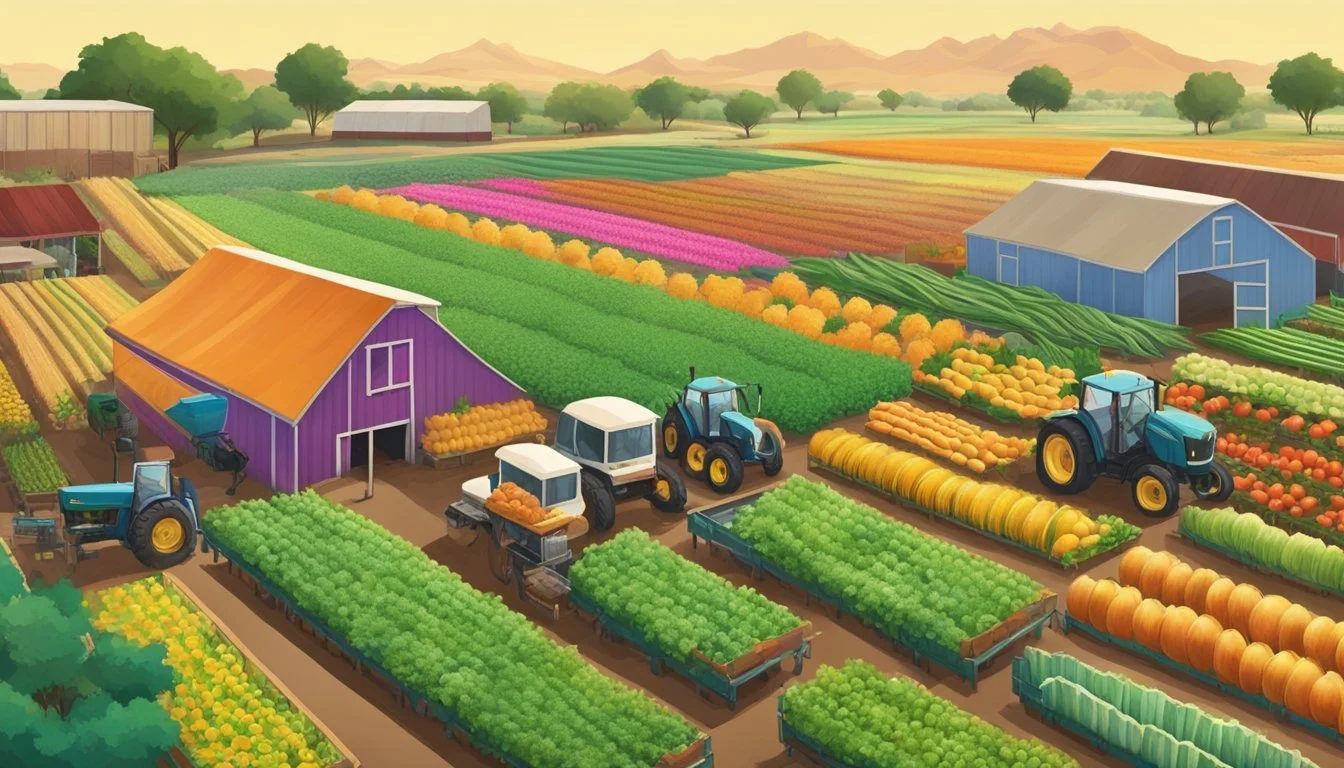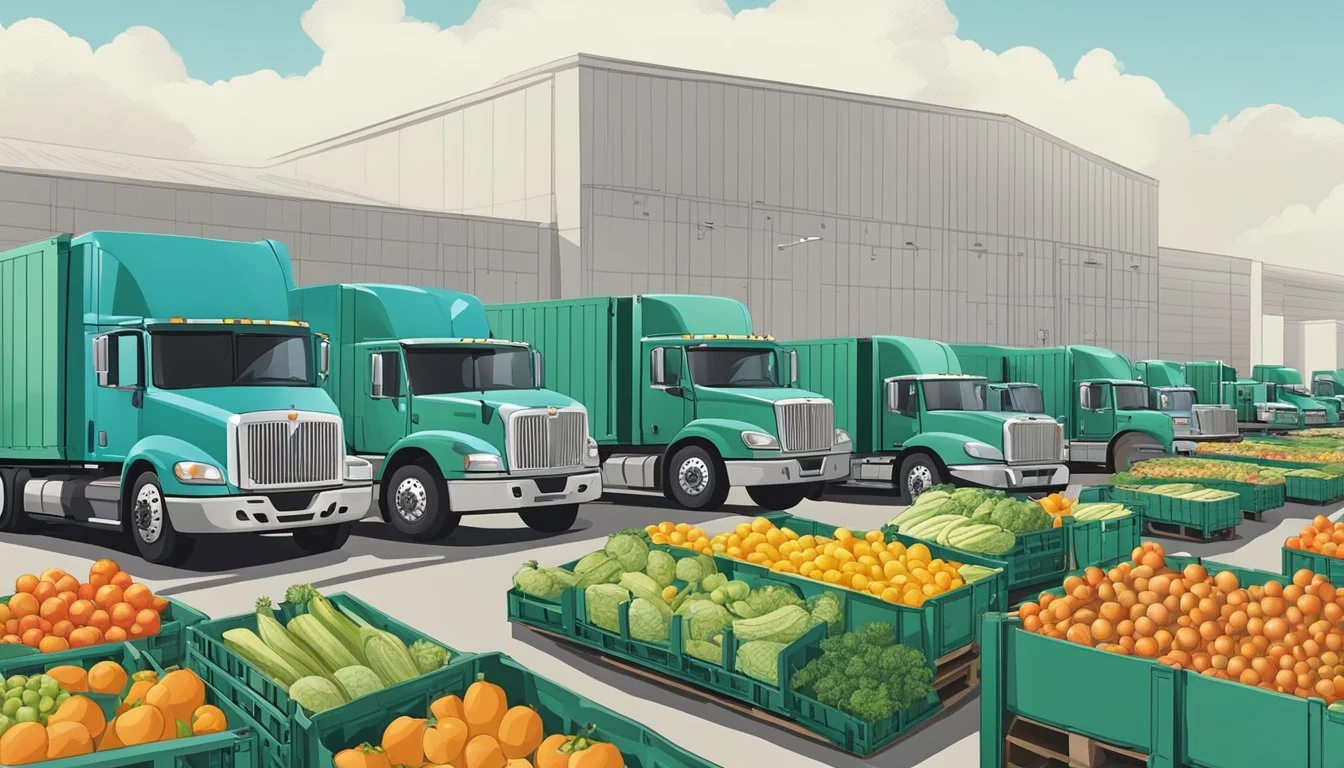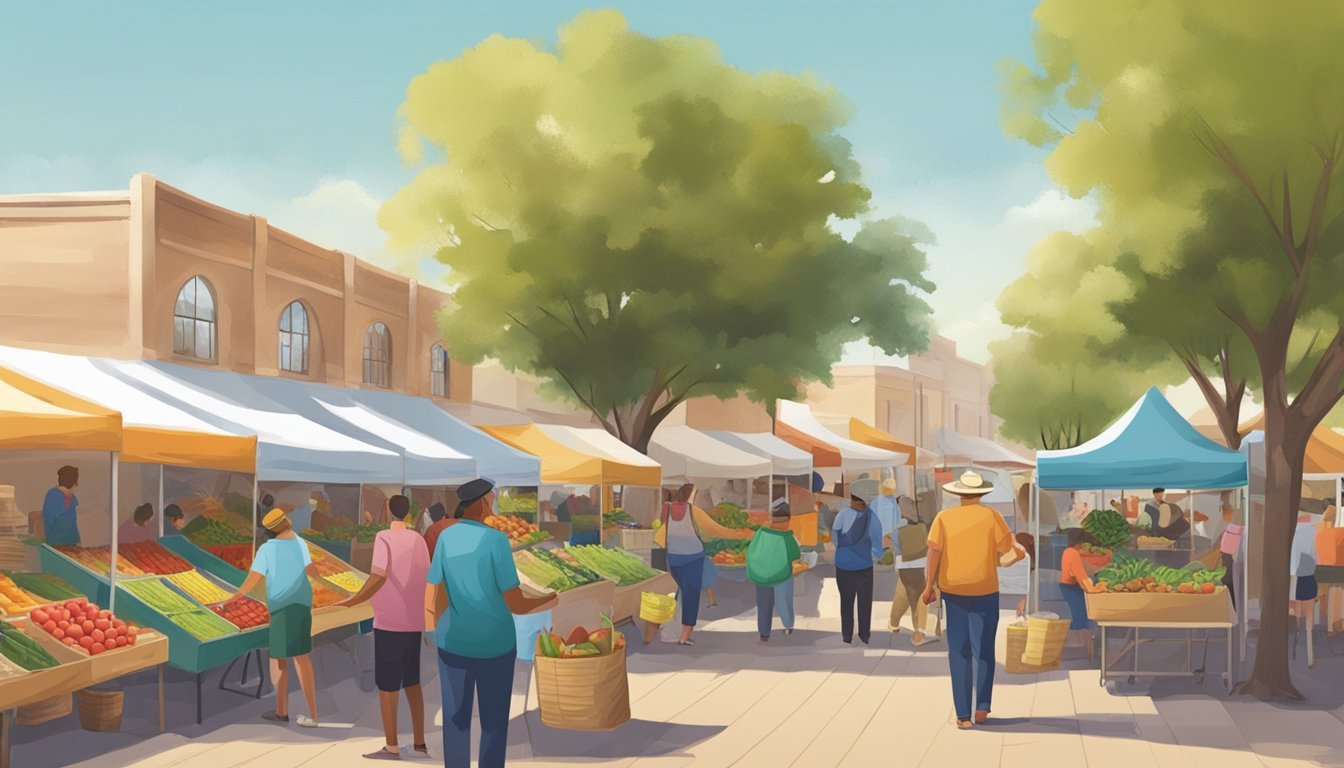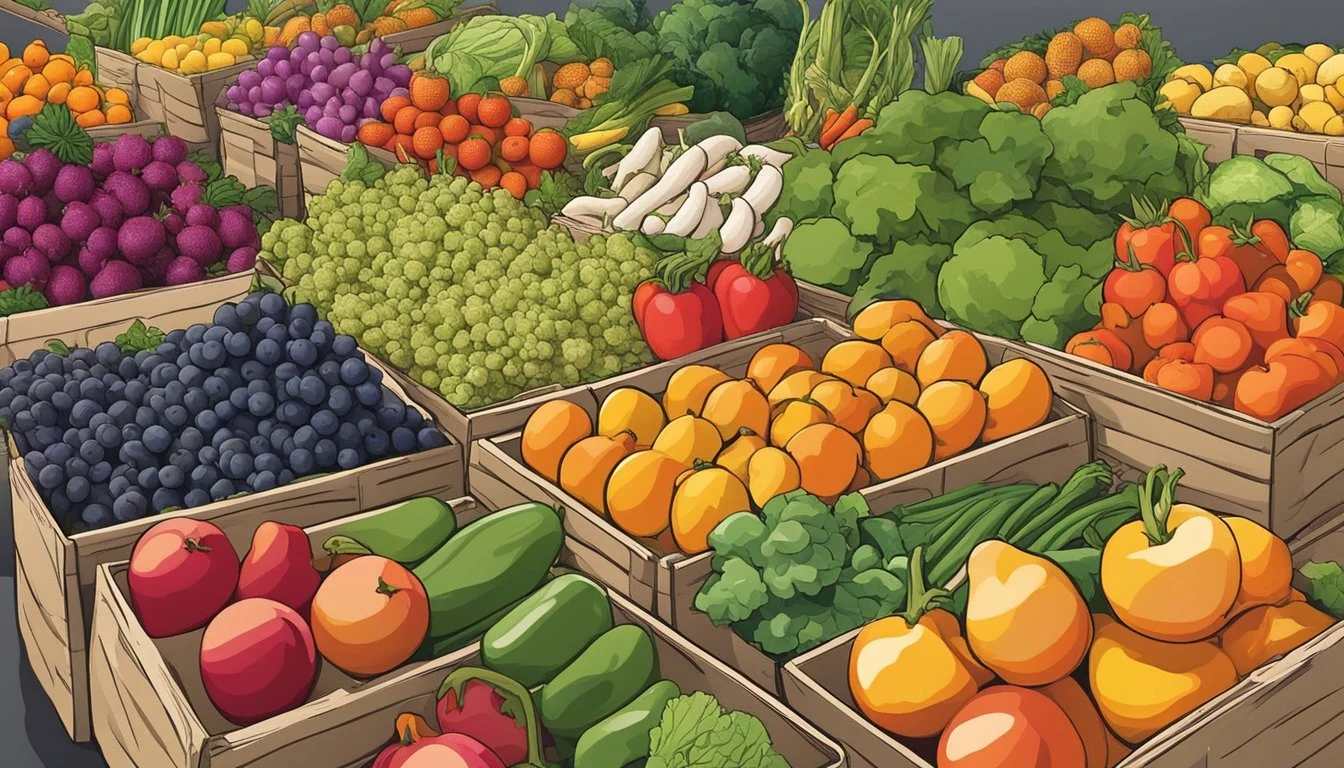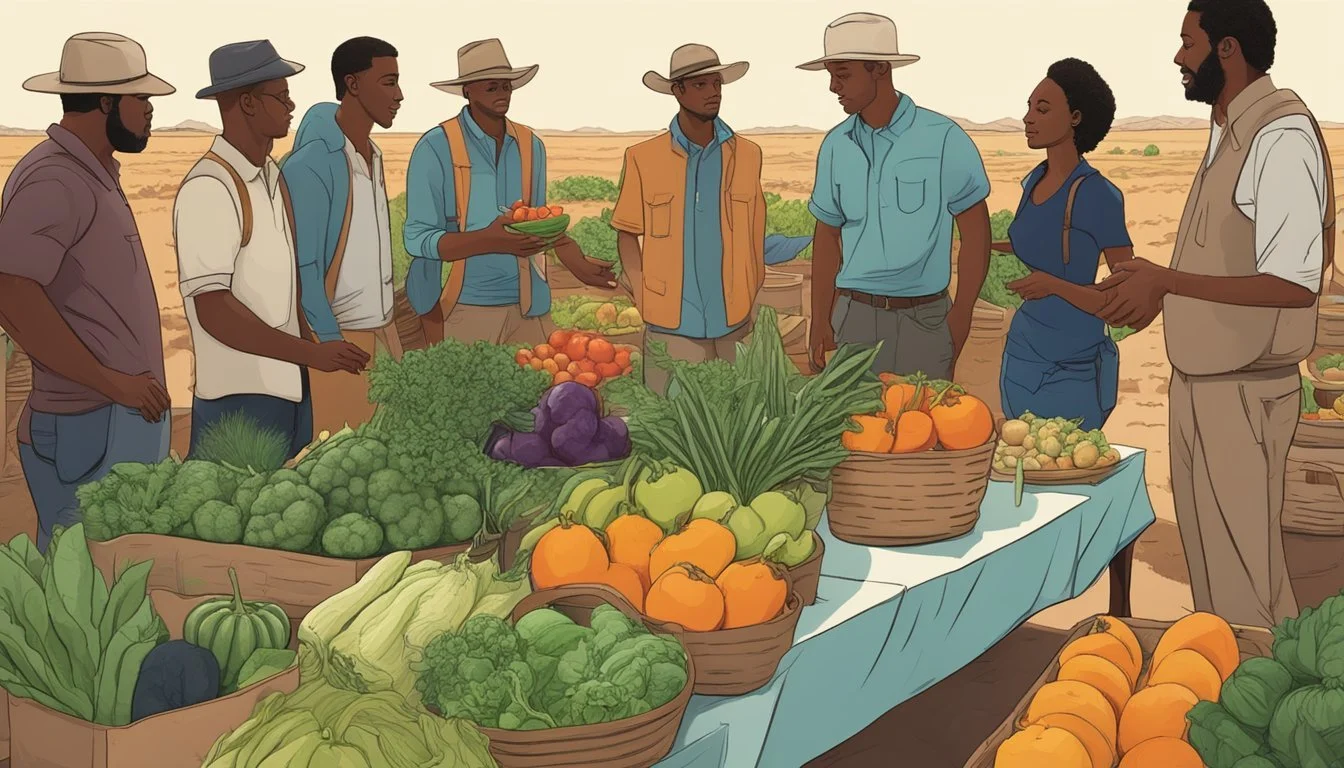Community Supported Agriculture (CSA) in Odessa, TX
A Guide to Local Farm Partnerships
Community Supported Agriculture, or CSA, has become a notable movement in the local food economy of Odessa, Texas. Residents can subscribe to the harvest of nearby farms, receiving regular shares of fresh produce and, at times, other farm products.
CSA programs offer mutual benefits; consumers enjoy fresh, locally-sourced food while farmers gain financial support and a direct connection to their community. These subscriptions usually consist of weekly or bi-weekly boxes filled with a variety of seasonal produce which participants pick up at designated locations.
By engaging in CSA, Odessa locals are not only able to access nutritious, often organic produce but also contribute to sustainable farming practices and the local economy. This system fosters a sense of community and a deeper appreciation for the food on their tables, knowing it has been grown and harvested within a close radius of their homes.
Understanding CSA
Community Supported Agriculture (CSA) represents a collaborative approach to local farming, where consumers invest in local agriculture and receive fresh produce regularly. It is a model that promotes sustainable practices and fosters a healthy relationship between farmers and community members.
History and Concept of CSA
The concept of CSA began in Japan and Switzerland in the 1960s and was introduced to the United States in the 1980s. In this model, members pay for a share of a farm's production before the season begins, thereby becoming stakeholders in the agricultural process.
CSA Functionality and Structure
A typical CSA functions through memberships where consumers—referred to as members—pre-purchase a share of the season's harvest. In turn, the farmer provides a weekly or bi-weekly delivery of fresh, in-season produce. These subscriptions are usually offered on a seasonal basis and can range anywhere from 20 to 22 weeks.
Membership: Paid upfront
Duration: Seasonal (often May to October)
Delivery: Regular (weekly/bi-weekly)
Benefits of Joining a CSA
Members benefit from joining a CSA through:
Access to Fresh Produce: Directly receiving fresh, in-season fruits and vegetables.
Health Advantages: Consuming produce that is typically organic and free of preservatives.
Support of Local Agriculture: Contributing economically to local farmers, which helps to sustain their operations and promotes sustainable farming practices.
Community Engagement: Forming a closer connection with the source of their food and understanding the seasonal cycles of farming.
CSA in Odessa, Texas
Community Supported Agriculture (CSA) programs in Odessa, Texas facilitate a direct partnership between local farmers and consumers, ensuring access to fresh, seasonal produce. These initiatives strengthen the community's connection with local food sources.
Overview of Local CSA Programs
In Odessa, Texas, CSA programs reflect a growing interest in sustainable and local food practices. Local CSA farms offer subscriptions where members receive a share of the farm's harvest, typically consisting of a variety of fresh vegetables and other produce. For example, Tir Bluen is an organic farm that began operations in 2013 and provides a selection of local foods to its CSA members.
Location: Southern Texas region, specifically around Odessa, TX.
Produce Variety: A rich assortment of seasonal vegetables and fruits.
Subscription Model: Weekly or bi-weekly boxes available for pickup or delivery.
CSA subscribers in Odessa enjoy the benefit of knowing exactly where their food comes from, supporting local farms, and eating healthy, seasonal foods.
Impact on the Odessa Community
CSA programs have made a considerable impact on the Odessa community. They foster a robust local economy by keeping food dollars within the local area and providing financial security for the farmers. Consumers gain not only fresh local food but also an education on the seasonality of food and sustainable farming practices.
Farmers Market Integration: Many local CSA farms also participate in Odessa's farmers markets, further expanding access to fresh produce.
Educational Outreach: CSAs often include newsletters or farm visits, enhancing the community's knowledge about food production.
By connecting consumers directly to the source of their food, CSAs in Odessa promote a healthier community aligned with the rhythms of nature and the seasons.
Membership and Subscription Models
In Odessa, TX, Community Supported Agriculture (CSA) offers a unique partnership between local farms and community members. This relationship allows for direct purchase of farm shares, facilitating a more sustainable agricultural system where members receive fresh, locally-sourced produce.
Different Types of CSA Subscriptions
CSAs in Odessa present an array of subscription models, catering to the diverse preferences and needs of its members. The standard offering is commonly a weekly farm box scheme, which includes a variety of seasonal produce. Some farms may also offer bi-weekly options or customizable shares where members can select their preferred items. Additionally, certain farms provide specialized subscriptions such as fruit-only boxes or meat-inclusive packages, ensuring that members have access to a full range of farm-fresh products.
Cost and Payment Options
The cost of CSA subscriptions in Odessa varies based on several factors including box sizes, contents, and delivery frequency. Farms typically offer different sizes of shares to accommodate individual or family needs:
Small Share: Ideal for individuals or small families.
Large Share: Better suited for larger families or those with greater consumption.
Payment methods are designed to be as flexible and accessible as possible, with farms often accepting:
Full Payments Upfront: Ensuring the farm's financial stability for the season.
Payment Plans: Offering members the option to pay in installments.
Some farms may also offer discounts for early sign-ups or full-season commitments, providing additional incentives for members to support local agriculture.
Agricultural Practices and Produce
In Odessa, Texas, CSA models are deeply rooted in principles of seasonality and sustainability. They emphasize delivering nutrient-rich produce while adhering to organic and environmentally favorable farming methodologies.
Seasonal Harvesting in CSA
Seasonal harvesting is central to CSA operations in Odessa. Farms curate boxes of produce that reflect the crops mature during Texas's growing seasons. Shareholders receive a variety of seasonal produce, including vegetables like tomatoes and peppers, as well as an assortment of greens.
Spring: tender leafy greens, sweet peas, and crisp lettuces
Summer: robust tomatoes, juicy peppers, and vibrant berries
Fall: hearty squashes, aromatic herbs, and earthy root vegetables
Winter: cold-tolerant greens, cruciferous vegetables, and sweet, frost-kissed carrots
Organic and Sustainable Farming
CSA farms near Odessa champion organic farming techniques. These farms bear the commitment to avoid synthetic chemicals, employing instead practices such as crop rotation and natural composting to enrich the soil. Such strategies contribute to regenerative agriculture, a system that sustains the health of ecosystems.
Chemical-free: No use of synthetic pesticides or fertilizers
Biodiversity: Maintaining a range of crop species to support ecosystem health
Soil health: Focus on composting and natural amendments for soil fertility
Variety and Selection of Produce Available
CSA shareholders benefit from an extensive variety and selection of fresh produce. Farms offer a range of fruits and veggies, ensuring that each CSA box showcases the bounty of what's currently in season, straight from the organic farm to the table.
Vegetables: From rainbow carrots to heirloom tomatoes, each veggie is picked at its peak.
Fruits: Seasonal selections may include local Texas citrus, peaches, or apples, depending on the time of year.
Flavor and nutrition: Freshly harvested, the produce retains its flavor and nutrient content far better than store-bought alternatives.
This detailed look into the agricultural practices and the offerings of CSA programs in Odessa underscores their dedication to providing community members with fresh, organic, and seasonal food choices.
CSA Distribution and Delivery
Community Supported Agriculture (CSA) in Odessa, Texas, facilitates fresh food access through organized distribution and delivery systems. Members can choose from local pickup points or take advantage of home delivery systems for their share of produce, meat, eggs, and cheese, among other farm products.
Local Pickup Points
In Odessa, consumers typically have the option to collect their CSA shares at designated local pickup points. These points are strategically located to manage the distribution efficiently and to make it convenient for customers. They might include the farm itself, local markets, or other community hubs. The pickup schedule is clearly communicated to ensure members know when and where to receive their products like fresh vegetables, meat, eggs, and chicken.
Home Delivery Systems
Alternatively, some CSA programs in Odessa offer home delivery systems. This serves customers who prefer the convenience of direct delivery or those with limited access to pickup points. The CSA managers work diligently to ensure timely and reliable delivery, bringing right to the customer's door the benefits of a diversified diet direct from local producers. This option often allows customization of the share to include specific preferences such as dietary restrictions or a focus on products like cheese or pastured meat.
Supporting Local Economy and Farmers
Community Supported Agriculture (CSA) programs in Odessa, TX significantly benefit local farmers and bolster the city's economy by ensuring money remains within the community. Through direct sales, farmers can gain financial stability, and consumers enjoy fresh, local produce, reinforcing the economic cycle within Odessa.
Advantages for Local Farmers
Local farmers find CSA models considerably advantageous as they provide a steady income stream and reduce the unpredictability of market demand. By receiving upfront payments from community members, farmers can:
Plan their crop production more efficiently, aligning with guaranteed sales.
Invest in sustainable farming practices with less financial risk.
Build strong relationships with community members, leading to loyal customer bases.
Economic Impact on the Community
CSAs have a multiplier effect on the local Odessa economy. When farms thrive, they:
Create jobs, from farming to distribution.
Enable money to circulate locally, supporting other Odessa businesses.
Foster a community-oriented environment that values local food production and consumption.
By prioritizing the purchase of local goods, Odessa's residents ensure that their money is reinvested in their own community, promoting an interdependent and strong local economy.
Nutrition and Health Benefits
Community Supported Agriculture (CSA) in Odessa, Texas, offers opportunities for residents to access fresh, nutrient-rich produce directly from local farms. This initiative plays a vital role in enhancing healthy eating habits and diet quality among consumers.
Healthy Eating through CSA
CSA allows individuals in Odessa to consume seasonal produce that is often fresher and more nutrient-dense compared to store-bought alternatives. By committing to a share of a local farm's harvest, community members receive a regular supply of produce, which can lead to increased consumption of fruits and vegetables and a more diversified diet. The direct farm-to-table model ensures that CSA participants often receive their food within a short time after harvest, when the nutrient content is at its peak.
Dietary Impact of CSA Produce
Research suggests that those who participate in CSA programs generally report a greater intake of fruits and vegetables, indicating a positive shift in their dietary patterns. The array of healthy options provided by CSAs, including fresh eggs and a variety of seasonal produce, encourages cooking at home and experimenting with new recipes. These practices can enhance individuals' confidence in preparing healthy meals and improve their self-efficacy related to diet and health. Furthermore, the consistent consumption of fresh, nutrient-rich produce is linked to numerous health benefits, including the prevention of chronic diseases and the betterment of overall health.
Environmental Considerations
When evaluating the benefits of Community Supported Agriculture in Odessa, TX, a clear focus on environmental impacts stands out as a defining factor. CSA models such as those operating in the area emphasize both reducing carbon footprint and enhancing biodiversity, contributing to a more sustainable food system.
Reducing Carbon Footprint
Community Supported Agriculture supports the reduction of carbon footprint through localized food production. By minimizing the distance food travels from farm to table, CSAs help lower greenhouse gas emissions associated with traditional food distribution. Additionally, the use of sustainable practices and tools by CSA farms can lead to less energy-intensive methods of farming. The localized distribution not only conserves energy but also supports the integrity of nature, as it lessens the need for long-distance transportation methods that contribute heavily to carbon emissions.
Promoting Biodiversity and Resilience
CSAs, by their very nature, encourage a resilient farming system that works alongside nature. In Odessa, TX, CSA farms sometimes utilize regenerative agriculture practices that build soil health, conserve water, and increase farm and ecosystem biodiversity. These practices work in harmony with Mother Nature to promote a balance that benefits all species involved, from plants to pollinators. By fostering an environment where diverse plant and animal life can thrive, CSAs help maintain and strengthen the ecosystem's natural resilience to changes and stresses, such as climate variability.
Challenges and Considerations
Community Supported Agriculture (CSA) in Odessa, TX, encapsulates opportunities for local agriculture, yet it is essential to recognize the inherent challenges and to consider practical strategies for mitigation. Two critical aspects are assessing the risks associated with CSA models and managing customer expectations effectively.
Assessing the Risks of CSA
In Odessa, risks for CSA shareholders and farmers include fluctuating market demands and inconsistent weather patterns which can be particularly harsh in the region. These risks can affect crop yield, quality, and availability. To enhance security and income stability for both parties, it is crucial to develop contingency plans. These may involve diversifying crop production, incorporating weather-resistant plant varieties, and establishing clear communication channels between farmers and shareholders.
Crop Diversification: Plant a variety of crops to spread risk.
Weather-resistant Varieties: Invest in seeds adapted to local climate challenges.
Communication Channels: Maintain consistent updates on crop status.
Managing Customer Expectations
Customers need transparent and realistic insights into what CSA entails to manage their expectations effectively. They should be aware that their investment is subject to the unpredictabilities of farming. To manage expectations, CSA managers in Odessa could provide detailed descriptions of what shareholders might anticipate during a typical season, including potential highs and lows.
Clear Descriptions: Offer extensive details regarding potential crop varieties and quantities.
Regular Updates: Provide weekly updates to keep customers informed about the progress and potential changes in their share.
By focusing on these considerations, Odessa's CSA stakeholders can foster a resilient and mutually beneficial agricultural community.



